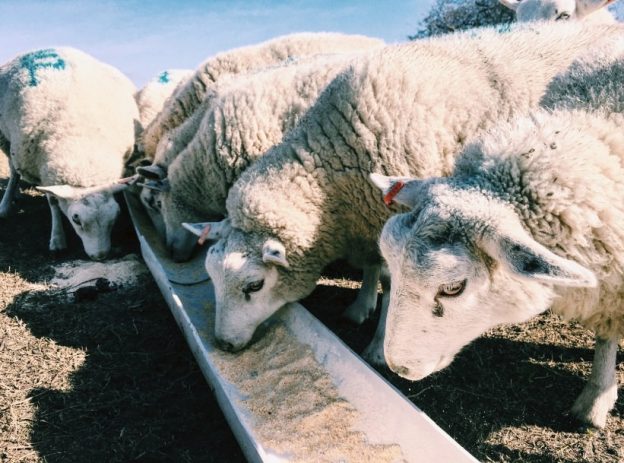Last year was quite a wet one for the UK. We had 111% of the annual rainfall from the last twenty years. So, 2023 was wetter than an average year for the period. The worst season was spring with 124%. Winter 23/24 is wet too, with flooding across many parts of the country. Sadly this can have a big impact on animal health, particularly for sheep herds. We want to have a look at that today.
The impact
We all know that rain is vital for growing crops. However, when it is excessive it causes some serious problems. The worst of these is it can flood fields, making them unusable for grazing. That can put the wellbeing of animals at risk because it means less forage is available.
Even if fields don’t flood, too much rain can have a negative impact on the quality of the grass. It can wash away essential nutrients, meaning things struggle to grow. Any grass that does grow can have stunted roots and be weaker. In turn, it can have a lower nutritional value for grazing animals.
Sheep herds have the higher risk here. Cattle tend to be indoors for the winter season, but many farmers leave sheep in fields. This can actually help pastures to perform better when the growing season starts. The sheep will continue to trim down the grass through winter, meaning it is less likely that frost will damage or kill it.
What to do?
If pastures are flooded or there are concerns about the availability or quality of forage, it is important to look at supplementing to improve animal health. Sheep tend to have a dip in body condition in winter. However, you do need to be careful, ensuring it is only gradual. You also need to take extra care with pregnant ewes. If they cannot meet their energy and protein needs, lambs can be lost or have development issues.
What you may need to do here is supplement additional forage, especially for pregnant ewes in the second and third month of pregnancy. You may then need to choose a high quality, nutrient dense supplement for the last six weeks before lambing. This is when the majority of the growth happens and energy and protein demands reach the highest levels.
Hopefully by lambing time fields will be drier and there will be enough fresh grass for ewes and lambs. That would mean supplementing is no longer necessary. You should still consider it though to ensure you are meeting the animals nutritional needs.
Talk to us about animal health products
JS Hubbuck Ltd has a lot of products to help farmers in the UK raise healthy animals. This includes feeds, supplements, and much more. We can even advise people about how to use everything to get the best results.
So, if you are looking to improve animal health, whether for sheep or other animals, we would love to help if we can. Contact us to find out more about what we have in stock.

